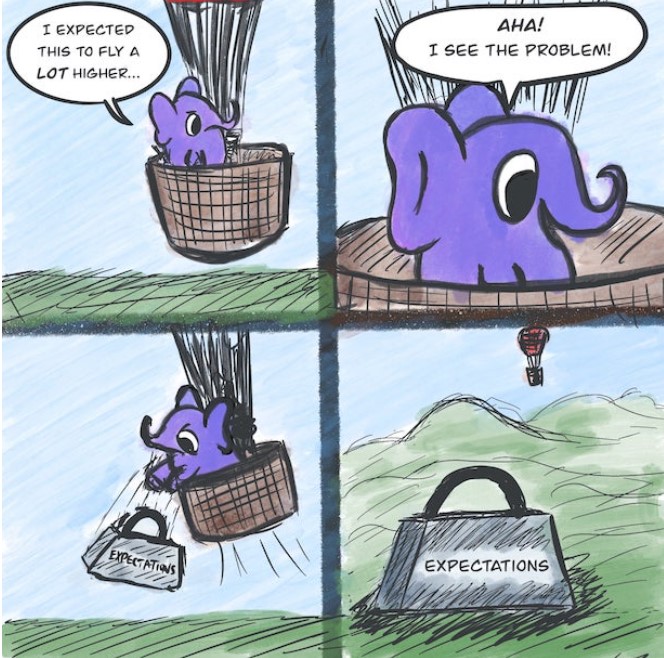What to Expect from Expectations?
It was Hideaki Anno who once said: “I’m often told that those who don’t like themselves set high expectations for themselves, but I think people who say that don’t really understand how painful that is.”
All of us are missing something; all of us are flawed. With all that happens in the world, all the chemical reactions that take place in even the simplest of things, the way atomic particles react; even amongst all of that, the most complex part of our lives is our emotions, and at the centre of this complexity is our image of the world and ourselves. But when exactly it is that we start hating ourselves? I’ve come to see that it depends a lot on the kind of expectations that we have of ourselves. Expectations are really just beliefs, but our relationship with expectations often reveals a lot about the way we interact with ourselves, and the way we interact with ourselves affects the way we move forward through life.
It’s when we make expectations unrealistic or rigid as a means of putting pressure on ourselves that it slowly starts to chip away at us. Most of us have a dichotomous way of dealing with expectations; we either turn inward away from the world and the people in it or turn outward to get people to notice us and to prove our worth.
You might think by turning inward; your expectations would focus on yourself. However, we, in turn, place our expectations on the people around us and expect the world to change before we do. By doing what we’re told, by doing what people want, by doing what society says is ideal, we hope that the people around us might acknowledge us how we want. We use this as an excuse to run away from dealing with ourselves, so we can blame others when things don’t go our way. Ignoring what we want, what we need, in favour of people-pleasing, we continually give away our worth by giving others the power to decide how we should feel about ourselves.
By placing our expectations outwards, we strive to achieve all that we can and use those achievements to cover up our insecurities. We expect great things of ourselves, so when our place in a hierarchy is threatened, it starts a decline in our mental well-being. By giving so much weight to our achievements, we have made them our defining features. When the desire to be great becomes a need, it leads to a big problem.
In reality, unrealistic expectations are just the way we punish ourselves. They live on the parts of us that we can’t accept, the ones that we’re trying to crush into submission. So who can we rely on to save ourselves from these rigid creations of our minds? Do we find solace in religion? In film? In music? In art? No. What about other people? But the others are just as flawed as us. No one knows what they’re doing; we make it up as we go along. If there’s nothing to rely on, then who will save us? Well, only we can save ourselves.
We find our salvation nowhere but within ourselves. Until we realize that everything that we don’t necessarily like about ourselves is a part of us, we can never get to know our true selves. Give the little imperfections a chance, and try to change only those things that you can.
It’s so simple, and yet so hard. It’s not at all easy to accept 100% of ourselves. But limitations and working around them is what makes life move forward. No one’s perfect, so stop expecting yourself to be but don’t use that as an excuse not to try harder. When it comes down to it, you have to carry your weight, and you’ll only feel lighter once you stop choosing who you think you should be, and start choosing who you are.



